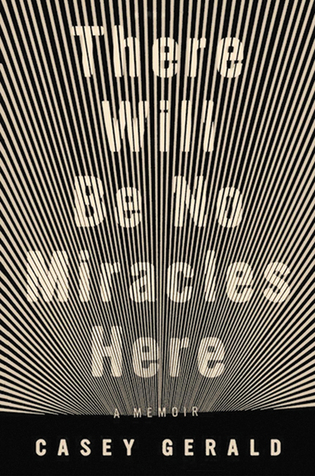 loading
loading
Arts & CultureReviews: November/December 2018Casey Gerald ’09 on his journey from poverty; Christopher Buckley ’75 on New Haven’s regicides; Ben Goldfarb ’13MEM on why beavers matter.  View full imageThere Will Be No Miracles Here Pages for Her, a new novel by Sylvia Brownrigg ’86, was published in paperback in July. Original, important books often defy summary, and even a string of quotations can’t capture the reading experience. This is true of Casey Gerald’s There Will Be No Miracles Here, a book tagged as a memoir that could as accurately be called a spiritual reflection or a cogent work of social commentary. In eloquent prose, and with a fluid storytelling that helps explain the viral popularity of his TED talk, Gerald unfolds a coming-of-age tale by turns poignant and triumphant, fierce and surprising. It is a telling that hums with humor, erudition, and grace. Gerald is well aware that his basic biography puts him in American Dream territory. Raised in South Oak Cliff, a poor part of Dallas, by a bipolar mother who vanished and a father who went from football stardom to heroin addiction and prison, Gerald was himself recruited to play football at Yale. After graduating, he went on to earn a degree from the business school at Harvard. Gerald frequently trips up our expectations in his constantly twisting story. He treats his father’s addiction with sympathy; writes lyrically about his own (gay) sexuality and Christian faith, and moments of conflict between the two; and expounds on football with unabashed passion and detail. After his fifth-grade teacher shrieks, “Oh! You are IT, Casey Gerald!” on hearing him deliver a speech from memory, Gerald notes that his rhetorical gift may at times have been a trap, even though it has also opened many doors for him. Gerald’s book travels back to historical moments such as Bobby Seale’s trial in New Haven and the founding of Yale’s African American studies department, and it includes cameos by George W. Bush ’68 and Skip Gates ’73. But the heart of his nuanced reflection is to weigh the costs of entering a world you were not expected to join, to consider the losses that accompany the obvious gains. Of people’s expectations that Gerald will somehow lift other African Americans up with his success, he writes: “Symbol is truly the world’s loneliest job.”
|
|